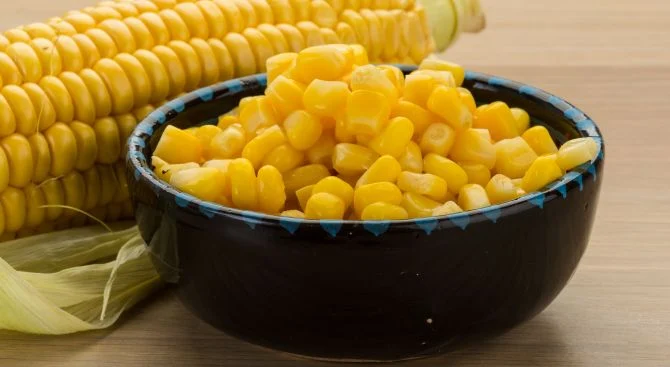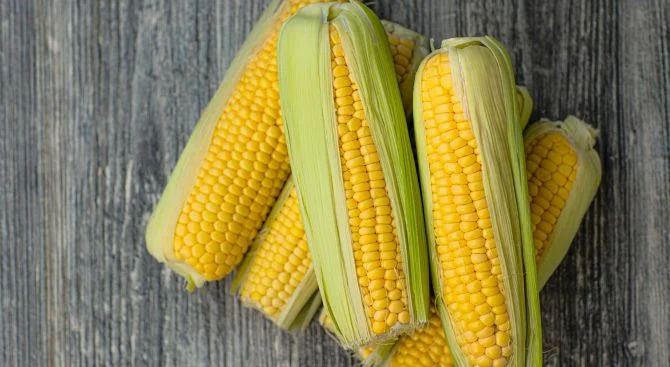The Nutritional Powerhouse: Exploring the Health Benefits of Corn

Corn, a versatile and delicious staple food, has been consumed for centuries. While some debates surround its nutritional value, research suggests that corn offers numerous health benefits. In this article, we will delve into the nutritional composition of corn and explore its potential positive impacts on digestion, disease prevention, and overall well-being.
Top 10 Health Benefits of Corn

- Aids in Digestion: Corn is rich in insoluble fiber, which promotes healthy digestion. The insoluble fiber present in corn's cell walls adds bulk to stool, facilitating the smooth movement of waste through the digestive system. Furthermore, dietary fiber supports weight management by increasing feelings of fullness after meals.
- Lowers Risk of Disease: As a whole grain, corn falls into the category of health-protective foods. Studies have shown that consuming whole grains, including corn, can help reduce the risk of chronic illnesses such as heart disease, colorectal cancer, type 2 diabetes, and obesity. Whole-grain corn sources include tortillas, popcorn, cornmeal, grits, and whole kernels.
- Provides Protective Antioxidants: Corn contains beneficial antioxidants, such as lutein, zeaxanthin, and quercetin. Lutein and zeaxanthin are carotenoids that contribute to eye health and may reduce the risk of eye problems. Colorful varieties of corn, such as blue and purple corn, are particularly rich in antioxidants, which possess anti-inflammatory properties and may protect against memory-related illnesses.
- Heart Health: The fiber, potassium, and folate content in corn can contribute to heart health. Fiber helps lower cholesterol levels, while potassium helps regulate blood pressure. Folate, a B-vitamin, plays a role in reducing homocysteine levels, which, when elevated, can be a risk factor for cardiovascular disease.
- Weight Management: The fiber content in corn can help with weight management by promoting a feeling of fullness, which may reduce overall calorie intake. Including fiber-rich foods like corn in a balanced diet can contribute to a healthy weight.
- Energy Source: Corn is a good source of complex carbohydrates, providing a steady release of energy. It serves as a valuable energy source for the body, making it suitable for individuals with high energy requirements, such as athletes.
- Skin Health: The antioxidants in corn, particularly vitamin C and lutein, contribute to skin health. Vitamin C is essential for collagen production, which is important for maintaining the skin's elasticity. Lutein helps protect the skin from UV damage.
- Digestive Health: The insoluble fiber in corn aids in digestion by adding bulk to the stool and promoting regular bowel movements. This can be beneficial for preventing constipation and maintaining a healthy digestive system.
- Gluten-Free Option: Corn and corn-based products are naturally gluten-free, making them suitable for individuals with gluten sensitivity or celiac disease.
- May Support Blood Sugar Control: Some research suggests that certain compounds found in corn may have a positive impact on blood sugar levels. However, it's essential to consume corn as part of a well-balanced diet, and individuals with diabetes should monitor their carbohydrate intake.
Corn Nutritional Value Per 100g

The nutritional content of corn can vary based on factors such as the type of corn (sweet corn, field corn, etc.) and how it is prepared. Here is an approximate nutritional breakdown for raw, yellow corn per 100 grams:
- Calories: 96 kcal
- Water: 73%
- Protein: 3.4 g
- Carbohydrates: 19 g
- Dietary Fiber: 2.7 g
- Sugars: 6.3 g
- Fat: 1.5 g
Vitamins and Minerals
If you have specific dietary goals or health concerns, it's advisable to consult with a healthcare professional or a registered dietitian. They can provide personalized guidance based on your individual needs and help you create a sustainable and balanced eating plan to support your weight loss journey.
- Vitamin A: 9 µg (micrograms)
- Vitamin C: 6.3 mg
- Thiamine (B1): 0.2 mg
- Niacin (B3): 1.7 mg
- Folate (B9): 42 µg
- Pantothenic Acid (B5): 0.7 mg
- Vitamin E: 0.5 mg
- Vitamin K: 0.3 µg
- Calcium: 2 mg
- Iron: 0.5 mg
- Magnesium: 37 mg
- Phosphorus: 89 mg
- Potassium: 270 mg
- Sodium: 15 mg
- Zinc: 0.5 mg
Is Corn Bad For You
Although rare, some individuals may have an allergy to corn. Allergy symptoms may include swelling or hives after consuming corn or corn-containing products. It is essential to consult an allergist for proper diagnosis and treatment. Additionally, it is worth noting that a significant portion of corn in the United States is genetically modified. Opting for USDA certified organic corn can help avoid genetically modified organisms (GMOs). However, there are certain considerations and factors to keep in mind:- Nutrient Profile: Corn is a good source of several essential nutrients, including fiber, vitamins (such as B vitamins and vitamin C), and minerals (such as manganese and phosphorus). These nutrients contribute to overall health and well-being.
- Caloric Content: While corn is nutrient-dense, it also provides calories, primarily from carbohydrates. If consumed in excessive amounts or with high-calorie toppings (such as butter or oil), it can contribute to an increased calorie intake, which may be a concern for those watching their weight.
- Processing and Added Ingredients: Some corn products, especially those found in processed foods, may contain added sugars, salts, or unhealthy fats. Consuming highly processed corn-based products, such as certain snacks or sweetened corn cereals, may not be as healthful as whole corn in its natural form.
- GMO Concerns: Some corn varieties are genetically modified (GMO). While GMO corn is generally considered safe for consumption, some individuals prefer to choose non-GMO options. If this is a concern for you, look for products labeled as non-GMO or organic.
- Food Sensitivities and Allergies: Corn allergies are rare but can occur. Individuals with allergies or sensitivities to corn should avoid its consumption and carefully check ingredient labels, as corn-derived ingredients are common in processed foods.
- Digestive Issues: Some people may experience digestive discomfort, such as gas or bloating, when consuming corn. This can be due to the presence of fiber and certain compounds in corn. Cooking corn thoroughly and introducing it gradually into your diet may help reduce the likelihood of digestive issues.
- Preparation Methods: The way corn is prepared can impact its nutritional value. Boiling or grilling corn without excessive added fats is a healthier option compared to frying or using excessive amounts of butter.
Tips for Consuming Corn:
Incorporating corn into your diet can be enjoyable and versatile. Fresh corn can be grilled on the cob or added to salads, soups, or stir-fries. Frozen corn is a convenient alternative that can be easily thawed and used in various dishes. Corn-based snacks like popcorn can be a healthy choice when prepared with minimal added fats and seasonings.Is Corn Good For Weight Loss
Corn can be part of a weight loss-friendly diet when consumed in moderation and as part of a balanced and nutrient-dense eating plan. Here are some considerations regarding corn and its potential role in weight loss:- Moderation is Key: While corn contains beneficial nutrients, it also provides calories, primarily from carbohydrates. To manage weight, it's important to consume corn in reasonable portions and be mindful of overall caloric intake.
- High in Fiber: Corn is a good source of dietary fiber, which contributes to feelings of fullness and helps regulate appetite. Including fiber-rich foods in your diet can support weight loss by promoting satiety and reducing the likelihood of overeating.
- Nutrient Content: Corn provides essential nutrients, including vitamins, minerals, and antioxidants. These nutrients are valuable for overall health and well-being. Incorporating a variety of nutrient-dense foods, including corn, can contribute to a balanced diet.
- Low in Fat: Corn is naturally low in fat, making it a healthy choice for those looking to manage their weight. However, it's essential to be mindful of the preparation methods and avoid excessive use of high-calorie toppings like butter and oil.
- Source of Complex Carbohydrates: Corn supplies complex carbohydrates, which are a good source of sustained energy. Including whole grains and complex carbohydrates in your diet can help prevent energy crashes and support an active lifestyle, which is beneficial for weight management.
- Consider Preparation Methods: How you prepare corn can impact its overall calorie and nutritional content. Boiling or grilling corn without excessive amounts of butter or oil is a healthier option compared to methods that add extra calories.
- Mindful Eating: Being mindful of portion sizes and paying attention to hunger and fullness cues can contribute to a healthier relationship with food and support weight loss goals.
If you have specific dietary goals or health concerns, it's advisable to consult with a healthcare professional or a registered dietitian. They can provide personalized guidance based on your individual needs and help you create a sustainable and balanced eating plan to support your weight loss journey.
Post a Comment